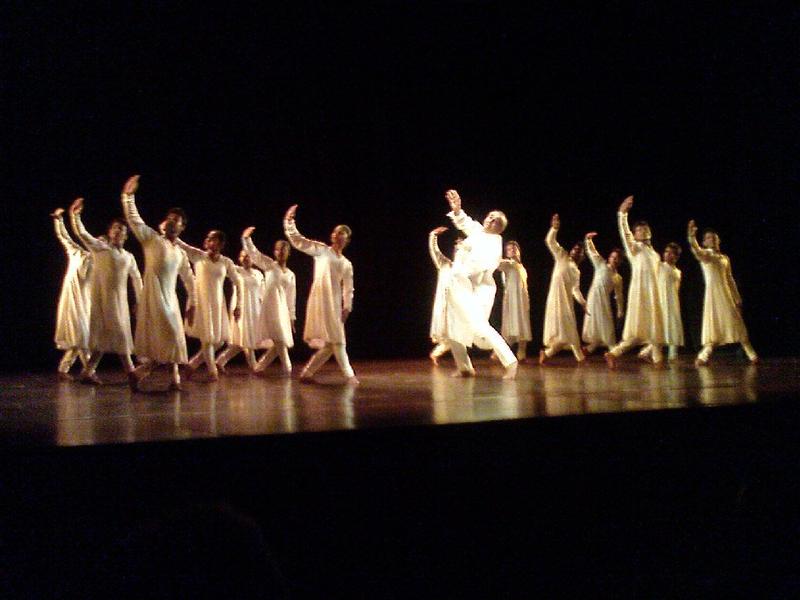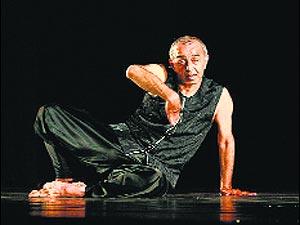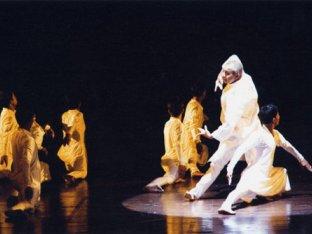Breaking Boundaries
Astad Deboo, not unknown to Auroville public, and one of the first modern dancers in India got an impressive life path behind him. But nothing gives him greater pleasure than working with children eager to learn movements and adopting his style and postures. At Sri Aurobindo Auditorium, Bharat Nivas, Pavilion of Indian Culture we had a chance to see an excellent performance of street children from Dehli, accompanied with unique, also contemporary music pieces of modern India.
Though there are no stories, Breaking Boundaries comprises 5 interwoven pieces, exploring the evolution of life, the movements like strokes on the canvas with the dance making the entire picture.These children have had no particular dance training, but in the course of six months, Deboo exposed them to movements, introduced a few Indian classical mudras, neck movements and lot of floor work, and made them aware that dance can be performed in limited spaces also. Why ‘Breaking Boundaries’? As the title suggests, lots of boundaries have been broken. My aim is to show the audience how the dancers have discovered movement, synchronization being minimal, and maneuvering movements in limited spaces," says Astad Deboo. Salaam Baalak Trust (SBT) is an IndianNon-profit and Non-governmental organization, established in 1988 with the proceeds from the film "Salaam Bombay!" (1988) made on street children by noted film director, Mira Nair , which provides support for street and working children in inner cities of New Delhi, and Mumbai, this includes providing education, basic literacy and schooling, full care facilities for the young (up to 12 years), drop-in shelters for older children, health care and counselling in HIV/AIDS and TB awareness. Today SBT runs, five 24-hour full care shelters for children, with one devoted to girl children, (Arushi), in Mumbai, Delhi and Bhubaneshwar; five outreach contact points mostly near railway stations and a 24-hour toll-free helpline service, catering to children in distress all over India, in all looking after 5,000 children every year. It is also a project ‘H71 partner NGO’ of United Nations Office on Drugs and Crime (UNODC), which whom its runs its ‘Kishalaya Centre’, and awareness programme at YMCA, Mumbai.
‘




